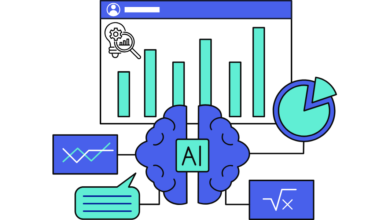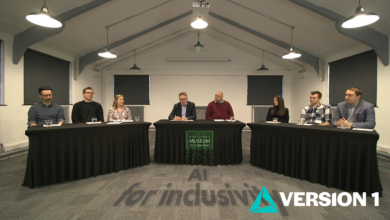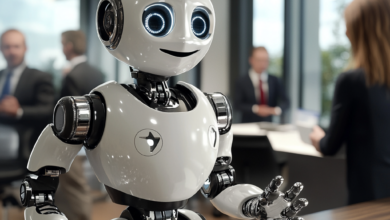
The process automation industry has been on the course towards Intelligent Process Automation for the last couple of years using AI technologies, e.g. Intelligent Document Processing, Chatbots and Cognitive Assistants and Process Mining. These technologies enable broader process automation as part of enterprise digital transformation programs.
The illustration also reflects this trend in Figure 1., which depicts the evolution from simple task automation towards a fully autonomous business run by a combination of various intelligent technologies. Traditional RPA (Digital Worker 1.0, or DW 1.0) has focused on the automation & orchestration of simple, repetitive knowledge worker tasks that humans have traditionally performed.
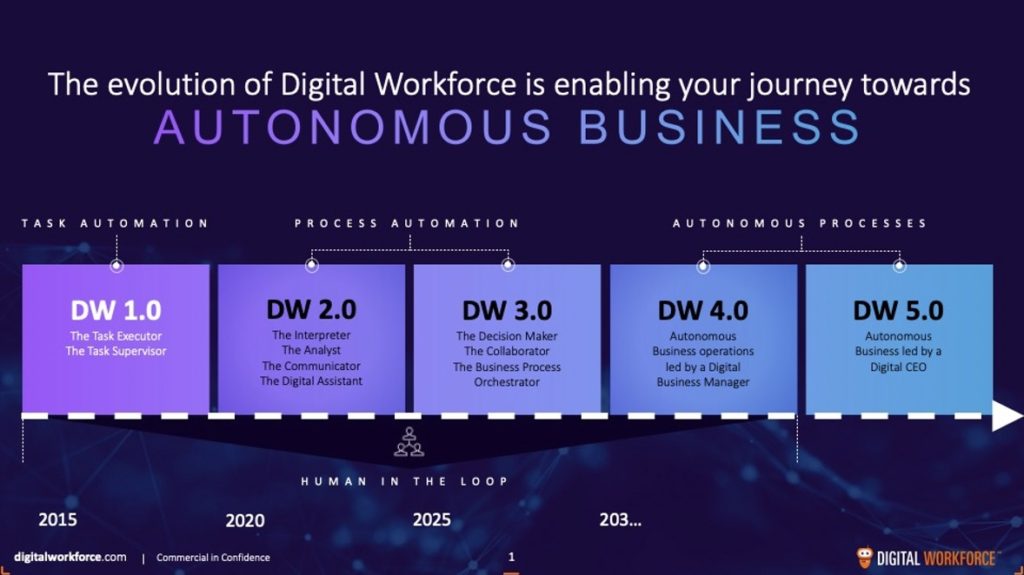
In general, RPA hasn’t been able to scale due to the limitations of RPA technology.
RPA technology vendors seem to have also positioned their technologies towards citizen developer-led democratization of automation within enterprises (see Figure 2).
Due to these scalability challenges, most automation within enterprises has focused on long-tail & low-value business processes.
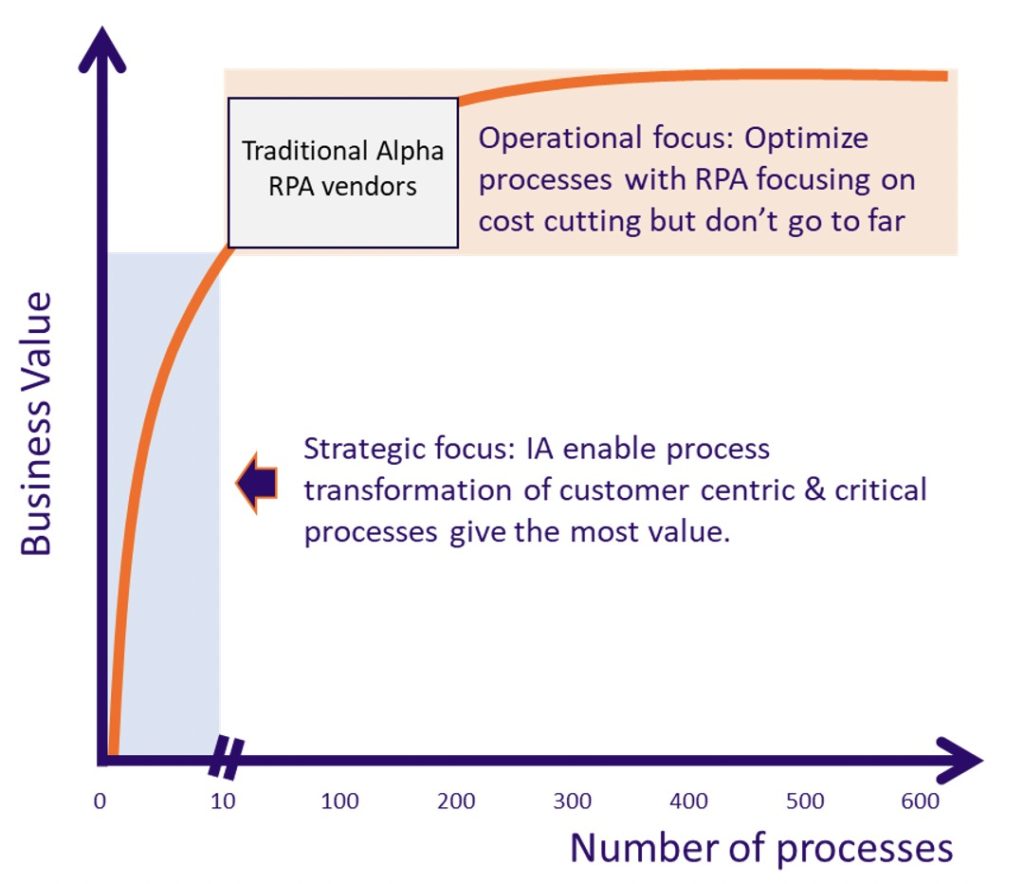
Digital Worker 2.0 and 3.0 focus on the automation of core business processes using more robust and advanced technologies that can include
- iPaaS
- Low Code integration and workflow design
- Rules Engine
- Process Mining and Process Orchestration
- OCR, NLP and Deep Learning for processing unstructured data in business processes
- AI-assisted decision making, while using RPA as the non-invasive integration wherever needed
Transitioning from DW 1.0 to DW3.0 leads to more comprehensive and deep automation with a low human touch. The present-day Intelligent Automation or Hyperautomation industry moves towards this direction via partnerships, mergers and acquisitions and technology convergence from various tangents. Enterprises will gain more value from Intelligent automation platforms and higher Return On Investment (ROI).
Currently, the road from DW3.0 towards DW5.0 seems far-fetched & and a distant dream, but there are interesting and innovative startups working on building intelligent platforms or digital business operating systems that could enable enterprises to run on auto-pilot mode with minimal human intervention.
These platforms will ensure that the end-to-end processes are run and orchestrated across systems, AI, bots, or humans, optimizing end-to-end business/enterprise performance. Rather than optimizing KPIs within functional silos, these advanced platforms would ensure businesses are highly elastic and scalable to operate on optimal capacity.
From a technology perspective, these cloud-native platforms employ advanced & intelligent orchestration and optimization techniques on top of the DW3.0 technology stack to run businesses on auto-pilot. A few hidden gems from these startups would scale and disrupt the Enterprise Automation and ERP market and become the Tesla of the Enterprise Planning and Automation industry.
But even before the full auto-pilot world, it is evident that the disruption of autonomous business will allow “born digital” service providers to move into the BPO type of business models, allowing a transition from outsourcing to “roboshoring” of E2E business processes. These born digitals will use the best of breed technologies to offer scalability and flexibility beyond even the most sophisticated traditional BPO players opening the market to a whole new type of competition.

